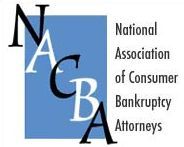Overspending is one of the most common causes of chapter 7 bankruptcy filings
Chapter 7 trustees ask what caused the debtor to file for bankruptcy, and when the answer is “overspending,” that typically satisfies the trustee. Other common reasons are loss of income, medical expenses, and divorce.
There is a difference, though, between overspending with the honest intention and expectation that you will be able to eventually repay the creditors and binge spending shortly before filing for Chapter 7, knowing that you will not be repaying the debts. When a person realizes that they are so far in debt that bankruptcy may be necessary to get out from under it, and then decides to run their cards up for luxury purchases with the intention of seeking a discharge under Chapter 7 rather than attempting to repay the debt, the affected creditors can challenge the Chapter 7 filing as an abuse of the process. In fact, incurring large charges within a few months before filing Chapter 7 is a leading cause of creditor objections to discharge.
When a credit card company receives notice of a Chapter 7 bankruptcy by one of its customers, and finds large purchases incurred close to the time the Chapter 7 was filed, the company may investigate whether the debtor had consulted a bankruptcy attorney before incurring the charges, as that could be evidence of an intent to abuse the Chapter 7 process. It is not a good idea to rack up new charges, especially for luxury purchases, after deciding to file a Chapter 7 bankruptcy.
Do not confuse innocent, unwise overspending with abuse of chapter 7
The trustee is not there to judge your financial planning skills, nor to shame you for incurring so much debt. Instead, the reason the trustee asks what caused you to file for chapter 7 is to get an understanding of your circumstances.

